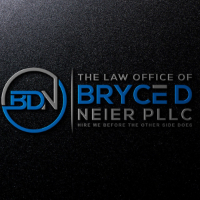Cumberland Juvenile Law Lawyer, North Carolina
Not enough matches for Cumberland Juvenile Law lawyer.
Below are all Cumberland Criminal lawyers.
Bryce D. Neier
✓ VERIFIEDDivorce & Family Law, Criminal, Lawsuit & Dispute, Entertainment, Ethics
Confident and Competent Representation.
The Law Office of Bryce D. Neier is based in Fayetteville, North Carolina and I handle a wide range of civil matters. However, the focus of my practic... (more)
Andrew R. Dempster
✓ VERIFIEDCar Accident, Motorcycle Accident, Criminal, Wrongful Death, Workers' Compensation
Andrew R. Dempster Jr. "Drew" is a second generation attorney. Drew grew up in Fayetteville, North Carolina where he graduated from Pine Forest High S... (more)
Timothy M. Dunn
Social Security, Workers' Compensation, Criminal, Accident & Injury
Status: In Good Standing Licensed: 37 Years




